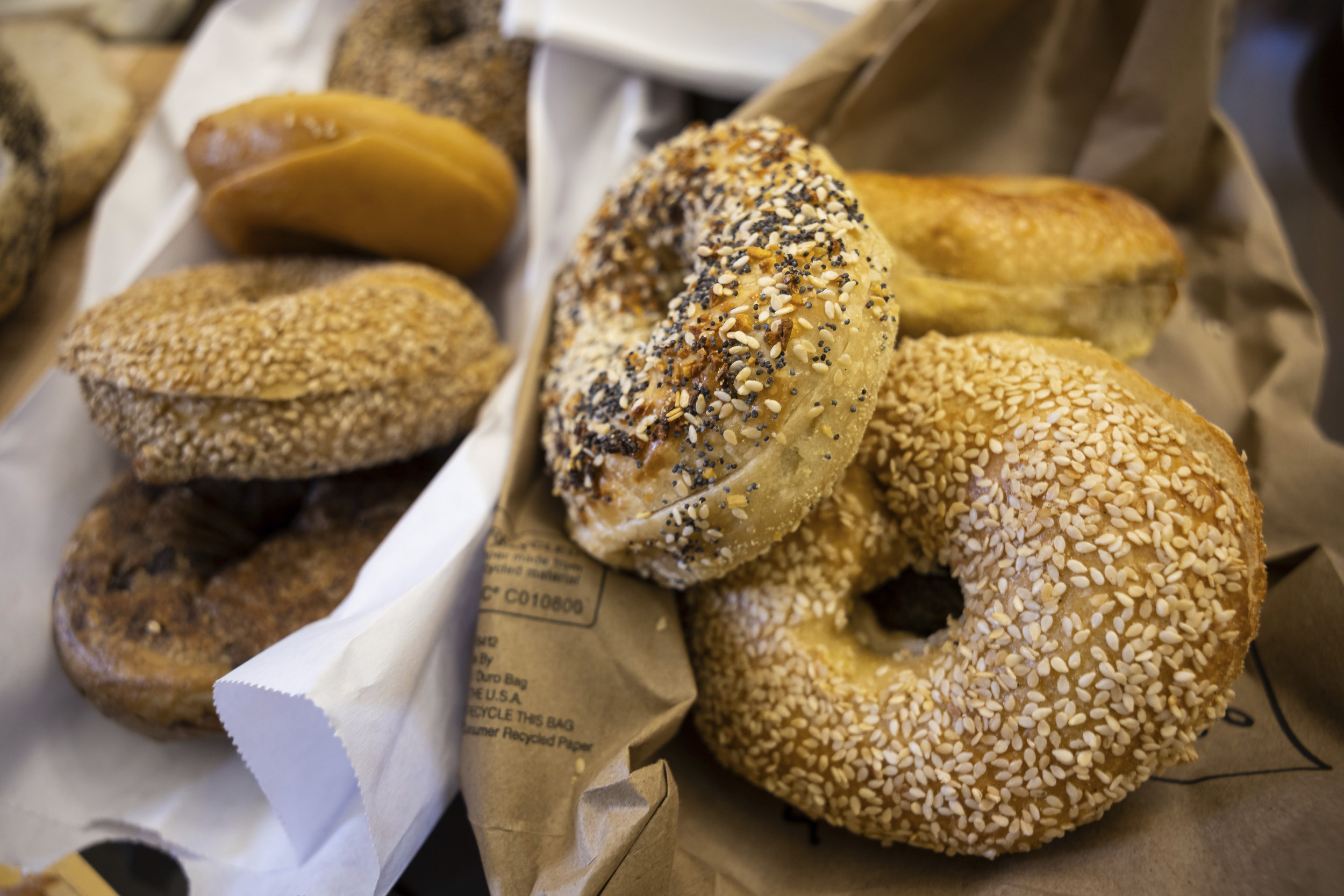
A recall of bagels and pastries due to possible undeclared allergens has been issued the second-highest risk warning by the U.S. Food and Drug Administration.
The Bonami Baking Company, Inc., based in California, issued a voluntary recall on July 24 for various bagel, bun and croissant products due potential undeclared milk, wheat, eggs, and soy. The FDA later issued a Class II risk classification for the recall on August 13.
Newsweek contacted the Bonami Baking Company, Inc. for comment by email outside of regular working hours.
Francis Chung/POLITICO/AP
Why It Matters
A Class II risk classification (one of three) refers to a situation in which the “use of or exposure to a violative product may cause temporary or medically reversible adverse health consequences or where the probability of serious adverse health consequences is remote,” according to the FDA.
Milk, wheat, eggs and soy are four of the nine major food allergens. The others are fish, crustacean shellfish, tree nuts, peanuts and sesame.
Allergic reactions vary in severity from mild symptoms, such as hives and lip swelling, to life-threatening complications, such as anaphylaxis, that may include fatal respiratory problems.
What To Know
The products impacted by the recall are the following:
- Whole Grain Par Baked Jalapeno Cheddar Bagel – 192 cases (72 pieces/case) – undeclared milk
- Cheddar Bagel – 6,156 pieces – undeclared milk and wheat
- Chocolate Croissants – 21,096 pieces – undeclared wheat, milk, and soy
- Whole Wheat Chocolate Croissants – 351 cases (144 pieces/case) – undeclared milk and soy
- Wheat Hamburger Buns – 61,862 packages (12 dozen/package) – undeclared milk and/or eggs
The products have use-by dates between 7/20/2025 and 7/20/2026. They were distributed to retail locations in California.
As of August 13, there had been no reports of illnesses in connection to the consumption of the recalled products.
What People Are Saying
The FDA, on its website: “People with food allergies should read labels and avoid the foods they are allergic to. The law requires that food labels identify the food source of all major food allergens used to make the food.”
The Mayo Clinic, on its website: “Milk allergy is an atypical immune system response to milk and products containing milk. It’s one of the most common food allergies in children. Cow’s milk is the usual cause of milk allergy, but milk from sheep, goats, buffalo and other mammals also can cause a reaction.
“An allergic reaction usually occurs soon after you or your child consumes milk. Signs and symptoms of milk allergy range from mild to severe and can include wheezing, vomiting, hives and digestive problems. Milk allergy can also cause anaphylaxis — a severe, life-threatening reaction.”
Dr. Sebastian Lighvani, director of New York Allergy & Asthma PLLC, previously told Newsweek: “Every three minutes in the United States, someone ends up in an emergency room because of an allergic reaction after accidental ingestion of food. So even when we try hard, these reactions are happening. And if you look at the incidence of anaphylaxis, it has skyrocketed in the last five, 10, 20 years. And in the U.S., there’s like a 300 to 400 percent increase in the rates of anaphylaxis to foods.”
What Happens Next
The recalls are listed as ongoing, according to the FDA.
Consumers who have allergies or sensitives to milk, wheat, eggs and soy should not consume the recalled products.
